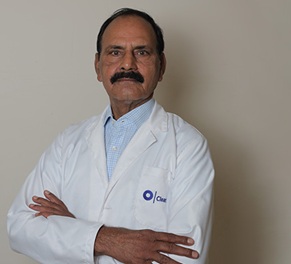Breast Lump Removal Surgery - Procedure and Recovery

Treatment Duration
30 Minutes
------ To ------60 Minutes
Treatment Cost
₹ 30,000
------ To ------₹ 1,00,000

Table of Contents
- What is Breast Lump Surgery?
- Conditions treated with Breast Lump Surgery
- Who needs Breast Lump Surgery?
- How is Breast Lump Surgery performed?
- What to expect before and on the day of Breast Lump Surgery?
- What to expect after Breast Lump Surgery?
- Benefits of Breast Lump Surgery
- Risks and complications of Breast Lump Surgery
- Risks of delayed Breast Lump Surgery
- Cost of Breast Lump Surgery
Breast lump surgery, also known as lumpectomy, is a procedure to remove the lump in the breast, which can be cancerous or non-cancerous lumps. This procedure is generally recommended to a patient if the breast lump becomes cancerous.
This procedure is a breast-conserving procedure, unlike a mastectomy, where the whole breast is removed. The patient undergoing this surgery will have minimum scarring, and breast symmetry will be maintained. This procedure takes about 1 to 2 hours to complete. The benefits of breast lump surgery (lumpectomy) outweigh the risks.
| Surgery Name |
Breast Lump Surgery |
| Alternative Name | Lumpectomy |
| Disease Treated | Breast Lumps |
| Benefits of the Surgery |
Minimally invasive method, conserving the breast, Improved mobility of the arm, No pain and discomfort |
|
Treated by |
Plastic Surgeon |
You can check Breast Lump Removal Surgery Cost here.
What is Breast Lump Surgery?
- Breast lump surgery, also known as lumpectomy or partial mastectomy, is a procedure to remove the lump and some tissues surrounding the lump from the breast (cancerous or non-cancerous).
- Compared to mastectomy, which removes the entire breast, breast lump surgery preserves the breast by leaving the natural breast intact. The patient who undergoes this surgery will have minimal scarring, and the symmetry of their breasts is also preserved.
Anatomy and Physiology of Breast
- While both men and women have breasts, the breast tissue is only well developed in women. The breast is two paired organs on the chest that produces, store and secrete milk after pregnancy.
- Each breast has 15 to 20 lobes that are arranged in a circle.
- Each lobe branches out to many lobules that end in bulbs which produce milk.
- Ducts connecting the lobules and the bulbs lead to an opening in the nipple, a raised area in the centre of the dark, circular, pigmented area on the skin of the breast (areola).
- Fat is present between the lobules and ducts.
- Blood supply to the breast is supplied through arteries and arterioles (small arteries).
- The lymphatic supply (draining of the lymph through ducts to the nodes) of the breast is to the nodes in the armpit area, and the nodes are present inside the breast tissue.

Breast Lump Removal Surgery Videos by HexaHealth
Expert Doctors (10)
NABH Accredited Hospitals (10)


Conditions treated with Breast Lump Surgery
Breast lump surgery treats various conditions, be they cancerous or non-cancerous. Depending on the severity of the condition, breast lump surgery is performed to treat the following conditions.
- Breast cysts: Fluid-filled sacs that form in the breasts due to fluid trapping in the milk ducts. They are most commonly found in pre-menopausal women.
- Fibroadenomas: Non-cancerous lump that develops in young women during reproductive age (20s and 30s).
- Fibrocystic changes: A condition in which there may be pain in the breast, cysts, and lumpy masses.
- Untreated/ Recurrent Breast infection: recurrent infection in the breasts could lead to lumps in the breast.
- Breast cancer: A tumour in the breast tissue that can spread to other body parts.
- Intraductal papilloma: a small non-cancerous lump in the milk duct.
Who needs Breast Lump Surgery?
The doctor will recommend breast lump surgery if the woman has the following conditions:
- Breast cyst
- Fibroadenomas
- Fibrocystic Changes
- Breast Infection
- Breast Cancer
- Intraductal Papilloma
The surgery is also needed when the woman presents with the following symptoms:
- The area around the breast looks different than the rest of the body
- Painful breast (mastalgia)
- Rapidly growing lump
- The skin around the breast appears puckered like an orange peel
- Inwards pulling of the nipples
- Pus or bloody discharge from the nipples

How is Breast Lump Surgery performed?
Breast lump surgery is a minimally invasive surgery that usually takes 1 to 2 hours to complete depending on the patient’s age, other medical conditions, and the severity of the condition. The procedure is generally performed under local or general anaesthesia to keep the patient comfortable. The following steps are carried out during the procedure:
- The patient will be asked to lie on their back on the operating table.
- An Intravenous (IV) line will be started in the patient’s arm or hand.
- The surgeon will administer local anaesthesia to the surgical site on the breast to numb the area. However, in a few cases, general anaesthesia is also administered depending on the condition of the patient and the surgeon’s opinion.
- The patient’s heart rate, blood pressure, breathing, and oxygen level will be monitored throughout the procedure.
- The skin over the surgical site will be cleaned with a sterile solution.
- An incision (a small cut) will be made over the breast lump to remove the lump along with some surrounding breast tissue.
- Breast tissue may be sent to the lab for an exam if required.
- A drainage tube might be inserted into the affected area if the lump is water-filled, like a cyst.
- The incision site will be closed with stitches or adhesive strips.
- A sterile bandage or dressing will be placed over the incision site.
What to expect before and on the day of Breast Lump Surgery?
It is essential for the patient to know and get all the details about breast lump surgery before undergoing the procedure. Thus, a patient can expect the following before or on the day of the breast lump procedure.
Before Breast Lump Surgery
Breast lump Surgery can cause stress and anxiety in a patient, no matter how minor the procedure is. The patient can have several doubts and fears, and the best way to overcome these doubts is by asking the surgeon the following questions about the breast lump surgery:
- The reason why the patient has been advised of this surgery?
- What should the patient be expecting post-surgery?
- What risks can be associated with the procedure?
- How long will be your hospital stay?
Following this, the doctor will:
- Take the patient to a pre-anaesthetic check-up to check if they are allergic to anaesthesia.
- Assess the medical history of the patient, the result of all the diagnostic tests advised, and the clearance letter for the surgery.
- Check and cross-verify the date for the surgical appointment to avoid any errors during the surgery.
- Ask the patient to stop any blood-thinning medication if taking them.
- Ask to stop eating and drinking for approximately 8 to 12 hours before surgery.
- Briefly explain the procedure to the patient.
On the day of Breast Lump Surgery
- It is advisable to reach the hospital slightly ahead of the scheduled time to complete the formalities.
- The hospital staff will ask the patient or their next of kin to sign the consent formalities before admitting the patient to the hospital.
- They will then inform the patient to change into a hospital gown and remove the jewellery and non-permanent dentures.
- Someone from the staff will also record the last meal details and give the patient antibiotics to be ingested with just a sip of water.
- The staff will shift them to the operating room (OR) after monitoring the vitals, such as heart rate, breathing, blood pressure, etc.
What to expect after Breast Lump Surgery?
A patient who has undergone breast lump surgery can expect the following after the surgery:
The recovery process in the hospital
- After the surgery and the surgical site is cleaned and draped, the nurse will shift the patient to post-operative care for recovery.
- They might experience dizziness and pain when anaesthesia starts to wear off.
- The nurse will monitor the patient’s vitals closely.
- The doctor will give instructions on dressing the wound and post-surgery follow-up.
- As breast removal surgery is a minor procedure, they might be allowed to go home the same day once the patient has stabilised or may have to stay in the hospital for a day as per the surgeon's advice.
- Before the patient gets discharged, the doctor will provide specific instructions regarding the following:
- Care for the incision site and the change in dressings
- Shoulder exercises that can lessen the stiffness
- Concerning symptoms to watch out for
- Wearing a bra, showering, and going back to normal activities
- The patient may feel extremely tired right after the surgery. However, resting for a few days can make the patient feel better.
Recovery process/expectations after hospital discharge
All the instructions provided by the doctor should be followed at all times.
- The patient must keep the surgical site clean and dry.
- The patient must take the pain reliever as prescribed by the doctor if the patient is feeling pain.
- The patient should be aware of the symptoms and report to the doctor if any alarming symptoms appear.
- Wearing a supportive bra can help minimise the pain.
- Surgery, whether major or minor, may feel tiring after undergoing one. However, resting for a few days can make the patient feel better. Generally, full recovery is seen after 2-3 weeks of breast lump removal surgery.
First follow-up appointment
- The first follow-up appointment post-surgery will be scheduled within 7 to 14 days.
- The doctor will remove the sutures (if non-dissolvable sutures were used), examine the patient’s state of recovery and prescribe medications accordingly.
- The doctor will also develop a strategy to manage complications.
- The patient will also be informed regarding future follow-up visits.
Benefits of Breast Lump Surgery
Breast lump surgery is a surgical procedure to remove a cancerous or non-cancerous lump inside the breast. The benefits of this surgery outweigh the risks associated with it. Some of the benefits of breast lump removal surgery are
- The development of breast cancer is inhibited before it progresses.
- The procedure ensures that all the damaged or cancerous cells are gone.
- This inhibits cancerous lumps from spreading to other parts of the body.
- Minimally invasive method, conserving the breast.
- Improved mobility of the arm
- No pain and discomfort
- Peace of mind due to freedom from cancer risks
- Increased self-esteem and body positivity.
- Appearance and sensations of the breast are intact
- Better breast symmetry
Risks and complications of Breast Lump Surgery
Surgery to remove the lump in the breast is an extremely safe one. However, the patient should be aware of the possible risks to make an informed decision. The risks of breast lump surgery include:
- Infection
- Non-healing of the wound due to separation
- Hematoma: a pool of clotted blood that forms when a blood vessel is damaged during surgery.
- Seroma: accumulation of clear fluid at the site of the incision.
- Wound dehiscence: separation of wound edges due to failure of proper wound healing
- Persistent postsurgical pain
- Mondor disease: it's caused by inflammation of a vein just under the skin of the breast or chest wall. It's also known as thrombophlebitis.
- Venous thromboembolism: a term referring to blood clots in the veins, is an underdiagnosed and serious yet preventable medical condition.
When is consultation with the doctor needed?
- Make an appointment and get the lump in the breast checked when:
- The lump feels firm and hard to touch
- The lump does not go away after 4 to six weeks
- The skin on the lump changes in texture, such as redness, crusting, puckering, etc
- There is nipple discharge, possibly bloody
- The nipples are pulled inwards
- The lump seems to be getting bigger
Risks of delayed Breast Lump Surgery
If breast lumps are not treated in time, they can be uncomfortable and may affect daily activities. Risks of delayed breast lump surgery are:
- Increased risk of spreading of the lump if cancerous
- If the lump metastasises, breast-conserving surgery cannot be done, and a total mastectomy should be performed.
- Survival rates decreases
- Delayed recovery
- Higher chances of recurrence
- Lymph nodes around the lump can also be affected
Cost of Breast Lump Surgery
The cost of a lumpectomy ranges from ₹30,000 to ₹1,00,000. The cost of breast lump removal surgery or lumpectomy is affected by various factors like
- Medical supplies used during the procedure
- The medical condition of the patient
- Fees of the surgeon and institution (hospital),
- Diagnostic tests are done before the surgery.
|
Procedure Name |
Cost Value |
| Breast Lump Surgery (Lumpectomy) | ₹30,000 to ₹1,00,000 |
Frequently Asked Questions (FAQ)
What are Myths vs Facts about Breast lump surgery?
- Myth: Breast lump surgery opens up cancer, comes in contact with air and spreads it.
Fact: Cancer does not spread when it comes in contact with air. If cancer has spread after the surgery, it may be because some cancer cells may be present post-surgery. - Myth: Mastectomy is safer than breast lump excision (Lumpectomy).
Fact: Mastectomy is the complete removal of the breast; therefore, if the lump in the breast is not big or easily excised, the doctor will recommend lumpectomy over mastectomy. - Myth: If the patient has a family history of breast cancer, then just breast lump surgery is not for them.
Fact: A history of breast cancer does not automatically mean that the breast lump is cancerous and life-threatening. The doctor will weigh various factors in deciding the type of surgery they might benefit from to prevent the recurrence of the lump.
How long does it take to recover from a breast lumpectomy?
Breast lump surgery is a procedure that conserves the breast by leaving the natural breast intact, compared to mastectomy, which removes the entire breast. Breast lump surgery takes around two to three weeks to recover.
Is breast lump removal a major surgery?
Breast lump removal is done as an outpatient surgery most of the time. The patient will be given general anaesthesia (you will be asleep but pain-free) or local anaesthesia (awake but sedated and pain-free). The procedure takes about 1 hour.
How long is recovery after an excisional breast biopsy?
Most women can return to their usual activities in a week or so. Avoid heavy lifting, jogging, or activities that cause pain in the surgical area for 1 to 2 weeks.
What happens after breast duct excision?
Breast duct excision is done if there is a lump in the milk ducts and to check for the cause of nipple discharge. After the surgery, there can be changes in the colour of the nipples, a decrease in nipple sensitivity, and, very rarely, loss of skin over the nipple.
How painful is lumpectomy recovery?
The surgical procedure is not painful as the patient will be under general anaesthesia. Till 2-3 days after the surgery, the patient might feel tired and pain in the breast. However, after three to four days, pain, swelling and tenderness start to decrease.
Can you walk after a lumpectomy?
Yes, you can walk when you have woken up after the anaesthesia wears off; however, there might be dizziness, so you should rest for one to two days.
How many hours is a lumpectomy surgery?
Breast lump surgery takes about one to two hours to complete.
How is a breast excision done?
The surgeon makes a small incision where the lump is detected in the breast. The surgeon takes out the lump and some cells surrounding the lump to make sure the damaged cells are entirely removed. After the removal, the surgeon will suture the incision site and dress the wound. The patient will be moved to the recovery room, where the anaesthesia wears off.
Is breast excision the same as lumpectomy?
Yes, breast excision and lumpectomy are the same, where only the lump in the breast is removed, conserving the breast in contrast to mastectomy, where the whole breast is removed.
Is surgical excision painful?
The patient will not feel any pain because the procedure is performed while they are under general anaesthesia. After they return home and the anaesthesia begins to wear off, and they will likely feel soreness under the armpits and around the chest area.
Can I drive after an excisional biopsy?
You should not drive for at least 24 hours after the surgery, as you will be under the effects of general anaesthesia. Talk to your doctor about when to return to driving after the surgery.
Are you put to sleep for an excisional biopsy?
Depending on your tumour size and condition, your doctor will give you general anaesthesia or local anaesthesia. If general anaesthesia is administered, you will be asleep during the procedure.
Breast Lump Removal Surgery Cost Videos
More Treatment options
Last Updated on: 29 November 2023
Author
HexaHealth Care Team
HexaHealth Care Team brings you medical content covering many important conditions, procedures falling under different medical specialities. The content published is thoroughly reviewed by our panel of qualified doctors for its accuracy and relevance.
Breast Lump Removal Surgery Cost in Top Cities
Latest Health Articles

























